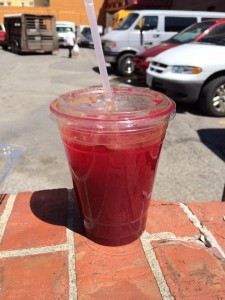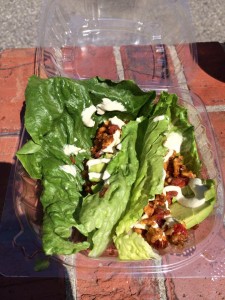Today we went to the Henry Wallace Farm Center and got our first look at larger-scale organic farming. While I had found my experiences with conventional farming practices and policies to be enriching I am personally far more interested in alternatives. Dalona was a great example of a small subsistence operation that feeds her family, while the Wallace Center Farm was an example of a much larger scale operation. I really liked how there was both a farm that grew all the produce and a restaurant that served items made with some ingredients from the farm. The farm also had a “Community Supported Agriculture” program that local people can participate in and receive food from the farm. Diane explained to us how she believed that organic food in its true form is local. This is even implied in the word organic which suggests a closeness to the soil that leads to the kind of relationships, whether between food and consumer or consumer and farmer, that can only be experienced in a local food model. This explanation, which was obviously something Diane felt very strongly about, made a lot of sense to me and is something with which I agree.
The farm manager Mosa’s story really made an impression on me. He attended Simpson College (Indianola, IA), a liberal arts college, got a degree in philosophy and economics, did some construction work, and then got a job working at the farm before eventually becoming the farm manager. This story gave me hope that my political science degree (where I really only care about political philosophy or other random classes I take for fun outside of my major) at a liberal arts college would not impair me from doing something meaningful in my life. I could actually see myself doing something similar to what Mosa does and was very reluctant to have to leave the farm (although, I do suspect my attitude would have completely changed as soon as winter came around). But even if, while it’s tempting, Even if I’m not cut out for some sort of farming job Mosa’s story still made me feel less stressed about the pressure to begin making future plans as I enter my senior year of college.

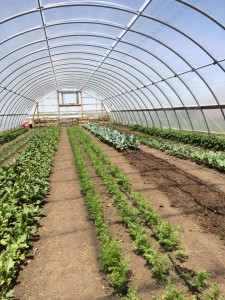
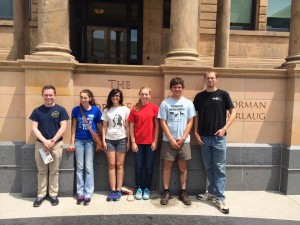

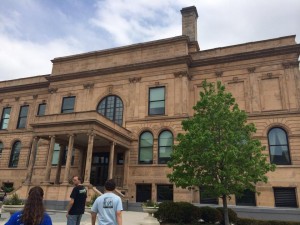
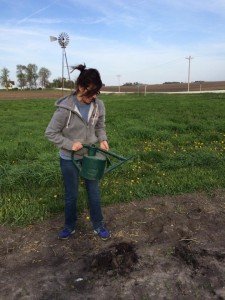
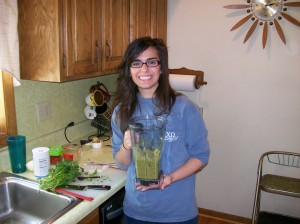
![[Not] The Grapes of Wrath](http://iowafurmanfarm.org/wp-content/uploads/2014/05/Farm2-300x300.jpg)
